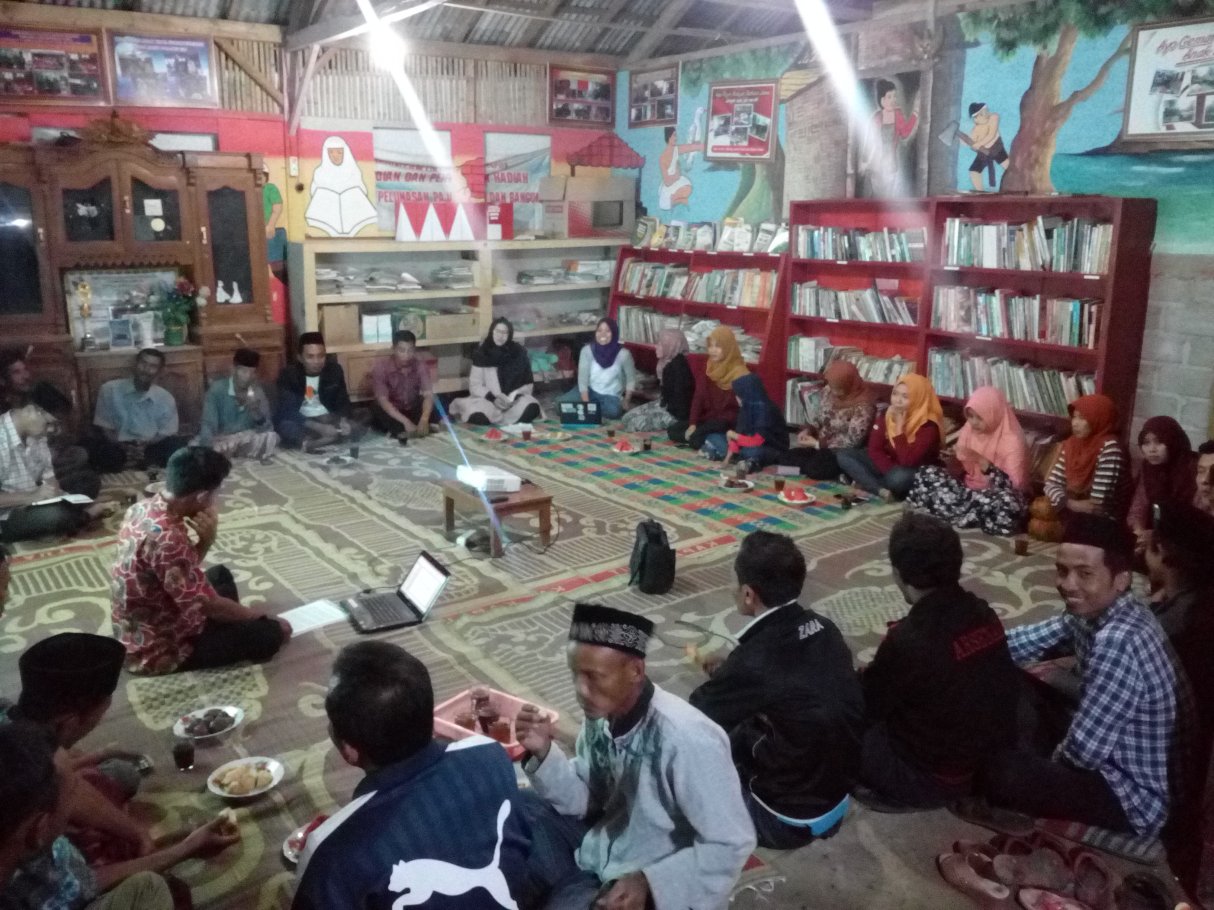
This year Infest Yogyakarta began initiating a protection model for migrant workers. This initiation is not only being carried out in Indonesia, but also Johor Bahru, Malaysia. The program implementation phase has now reached the process of selecting which villages will be used as the location for implementing the program. The selection process is carried out based on the results of need assessment (NA) or other information in 12 villages in Indonesia, namely in Blitar and Ponorogo Districts, as well as several communities of Indonesian Migrant Workers (BMI) in Johor Bahru, Malaysia. This is done to see the responses and readiness of each village, including in terms of availability of regulations, budgets, programs, management of migrant worker data, as well as the readiness of the community to be involved.
Information regarding Blitar, Ponorogo, and Johor Bahru districts were discussed by the Infest Yogyakarta Team in the Workshop on Outreach Results, from Saturday to Sunday (17-18 / 03/18). Based on the results of the workshop, six villages were identified as being suitable for accompaniment by Infest Yogyakarta in Blitar and Ponorogo Regencies. In Blitar District, the selected villages were Gogodeso Village, Pandanarum Village, and Mronjo Village. In Ponorogo Regency, the selected villages were Bringinan Village, Nongkodono Village, and Pondok Village.
The six selected villages will study with Infest Yogyakarta in the “Strengthening the Protection of Migrant Workers in the Country of Origin and Placement Destination Countries.” This program is a collaboration between Infest Yogyakarta and AWO International for the next three years, from 2018 to 2020.
Multi-Stakeholder Collaboration
In the process of discussing the results, Infest Yogyakarta also examine the strengths, weaknesses, opportunities, and threats at each level, starting from the community, village, regional, national and international levels.
According to Irsyadul Ibad, Director of Infest Yogyakarta, the implementation of the protection program for migrant workers involves not only the village government (Pemdes), but also the district government (Pemkab) through several Local Government Work Units (SKPD). In addition to the village and regional levels, Infest have also networked with several institutions both at national and international levels.
“In the early stages of program implementation, one of the most important parts of social preparation is building the commitment of each stakeholder at all levels. Involving the community, this program will also ensure the readiness of all communities to collaborate with the village. So before the community protects migrant workers and handles cases, make sure they are ready to collaborate with the village,” explained Irsyadul Ibad.
The same thing was also expressed by Ridwan Wahyudi (Yudi), Program Manager for “Strengthening the Protection of Migrant Workers in the Country of Origin and the Placement Destination Country.” Yudi added, in the process of implementing the program Infest also networked with other institutions. The institutions in question share concern for the same issues. In its implementation, these institutions will collaborate to strengthen community capacity in the protection of migrant workers, such as Indonesian Justice Without Borders (JWB) and the Union of Indonesian Migrant Workers (SBMI). [Alimah]

